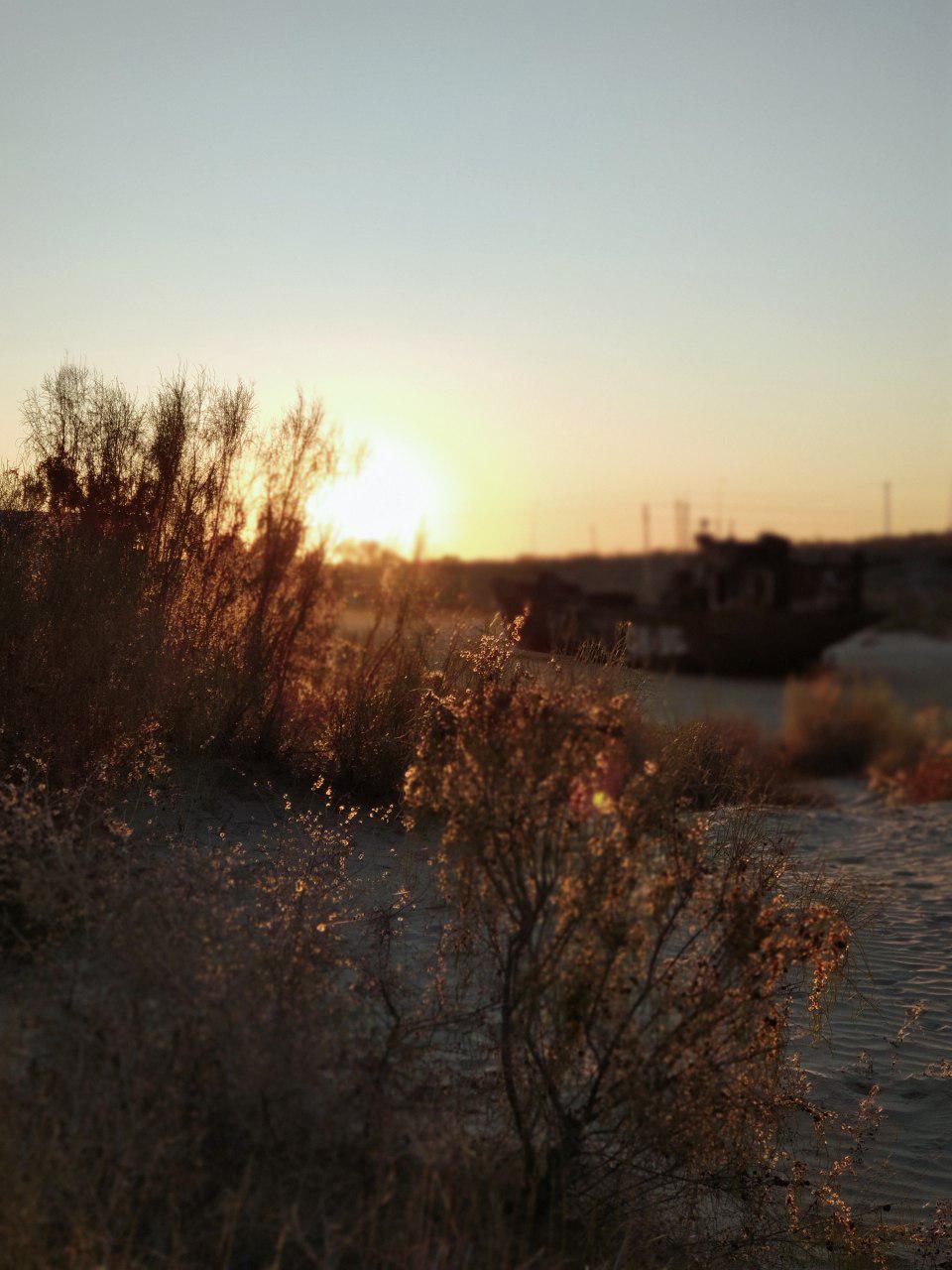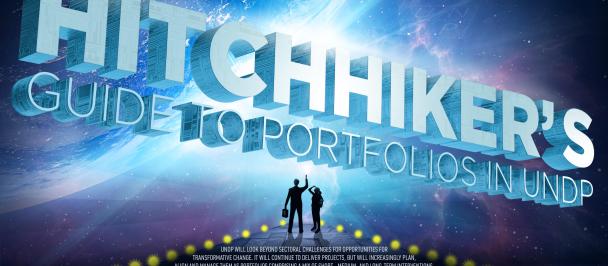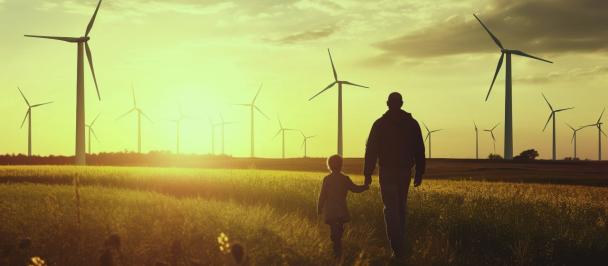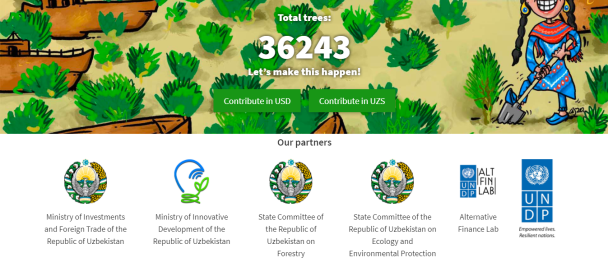UNDP Uzbekistan
In our field visit to Muynak, Karakalpakstan, the town welcomed us with a warm October weather. “You have arrived just in time, between the seasons; soon it’s going to be very cold and windy here,” we heard from the local people. Indeed, the temperature in the region fluctuates between -40℃ to +50℃ during the year with windy, freezing winters and scorching hot summers with sand storms. This was not always the case, and in not so distant past about just 50 years ago the town was a flourishing port and fishing town on the coast of the Aral Sea with a much milder climate. Now, the sea is gone. A whole generation grew up who never saw a glimpse of it.
We visited the town as part of our lab’s mission to explore and tackle complex challenges of today’s Uzbekistan. The set of environmental, economic and social challenges of the Aral Sea region, that over several past decades undergone tremendous environmental changes as a result of ineffective irrigation practices and consequent drying up of this inland sea, was naturally one of our first choices to work on as we described in our initial blog.
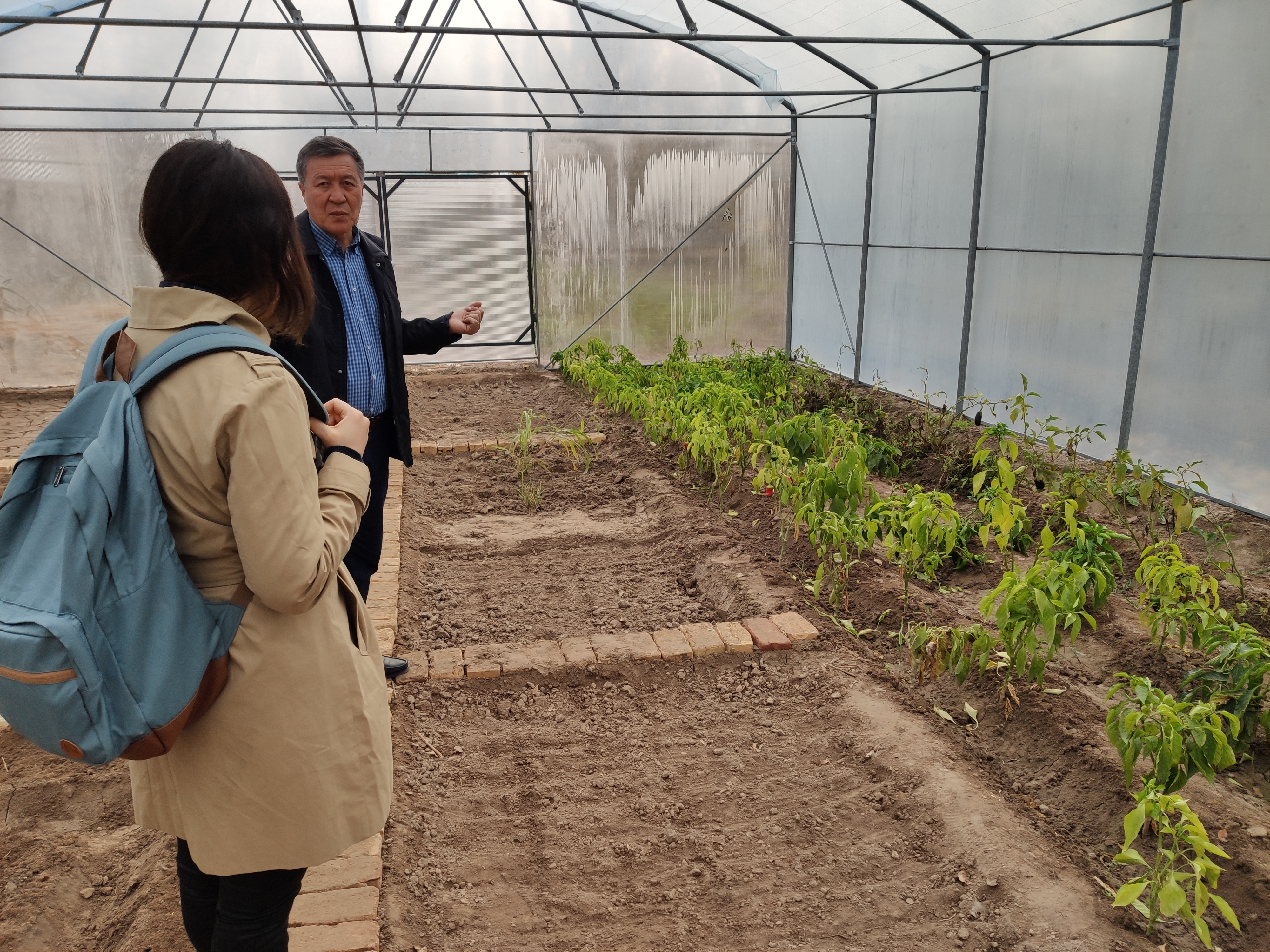
While standing at the observation deck of the ships’ graveyard at Muynak, it is hard to imagine that once you could gaze from the same place to an unending sea horizon. A feeling of bitterness encompasses when you realize that once life was boiling here; ships plowed the sea, every morning fishermen were waking up with beautiful dawns and prepared their gears and boats for sailing, children were running along the seashore, splashing in the rays of azure sea, women waiting during the sunsets on the coast for boats with haul. The sea was everything here – it was historical identity and a hope for communities, every single person, and what seemed to be a flourishing future around the sea. Sea dissapearance took away people’s hopes, leaving instead harsh livelihood conditions, environmental problems, unemployment, increased health issues, and many more issues.
In the last several years the government increased attention to the region of the Aral Sea. Large scale and innovative transformations in the region were put high in the agenda. Some of the strategic priorities were outlined in the Concept of turning the Aral Sea region to a zone of ecological innovation and technologies which was presented during the International Conference on transforming the Aral Sea region into a Zone of Environmental Innovations and Technologies which took place on 24-25 October this year. Among others, the concept prioritized integrated approach to tackle complex and interrelated issues and creation of innovative financing systems. As we planned to work on a crowdsourcing platform to support tree planting in the dry bottom of the Aral Sea, these calls ringed well with our plans.
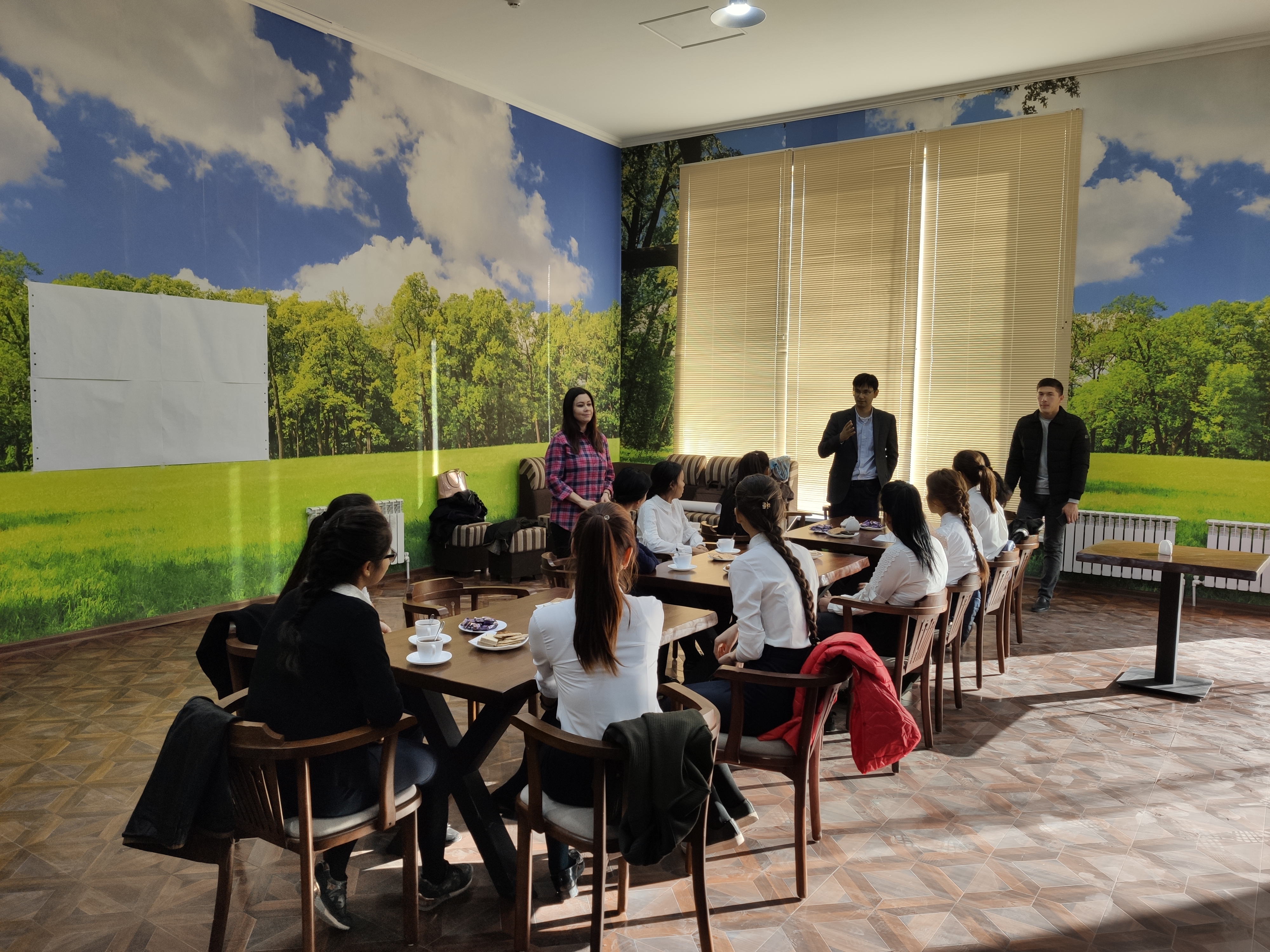
On a surface, it is difficult to tell apart the people living the region from the people living in other parts of Uzbekistan. They seem to have similar problems and hopes: education and employment opportunities for youth, access to water and healthcare, etc. But as we talked further to local authorities, farmers, community members, entrepreneurs and youth during our visit, we realized that consequences of the Aral Sea tragedy run through all these issues amplifying their magnitude and complicating them further. An emotional moment for us was when during an issue mapping session with local youth, many of them stated that they needed a green park and a zoo in their town.
On the other hand, positive changes are already observable in Muynak. We witnessed that the government is investing heavily in renovation of the roads and streets of the town, supporting manufacturing companies, encouraging innovative farming methods, etc. It was also inspiring to see UNDP’s contribution in these developments. Meeting a woman with a disability was amazing. The seed funding helped her to establish a prosperous: she employed more than 20 women. We also visited a community where reconstructed pump station helped to bring clean water. Visiting a local hospital where solar power helped to have uninterrupted electricity supply strengthened our belief in resilience of the local people and that sometimes much can be done with a little support.
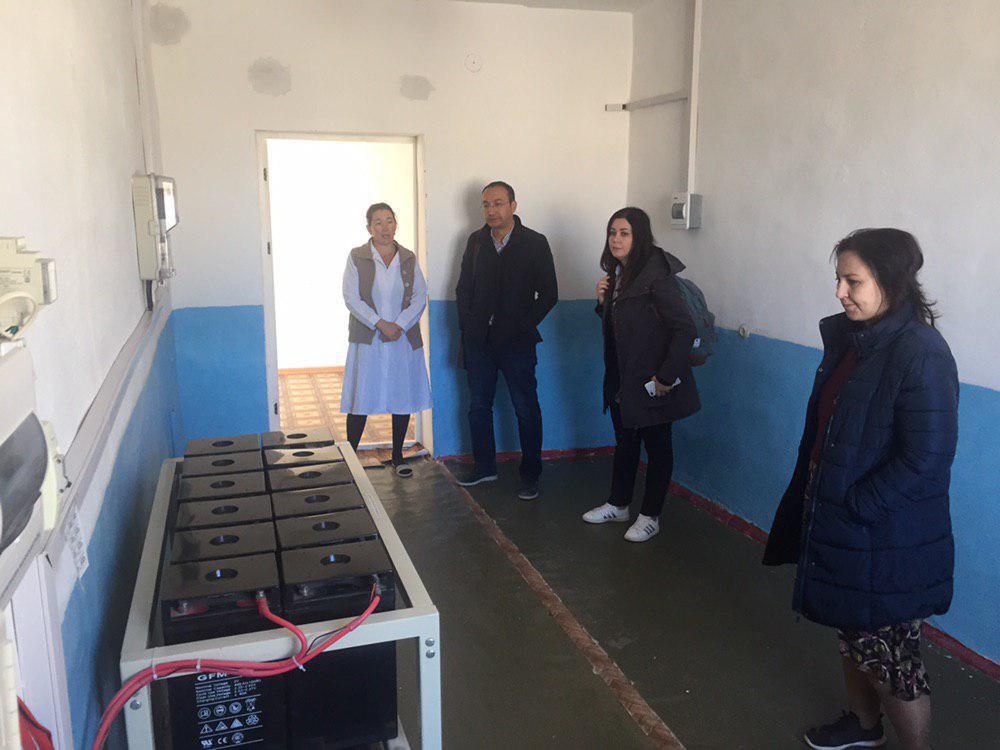
However, one of the most uplifting things we have noticed, meeting the local people, was that they regained hope: hope for the future, confidence in themselves, and trust that local and global community are not indifferent.
Reflections and further steps for our Accelerator Lab
Spending several days in Muynak helped us to understand the core settings. We could get better exposure to the everyday challenges of the people and get firsthand views on their complexity.
We have to say that this trip changed us tremendously in a good way. As a lab operating with certain approaches, methods and tools, we now realize how crucial is a thorough exploration of the issues, mapping grassroot solutions, and building experiments based on diverse assumptions. It was a full realization that interacting with local people, hearing their stories, opinions, and letting them be at the frontiers of the initiatives are all important in finding relevant and working solutions.
Returning from the trip, we could refine our plans in the Aral Sea Region and elaborate our idea to integrate crowdfunding financing into afforestation activities in the dry seabed of the sea. We structured our next steps, identified the right partners, honed our strategy and came up with a coherent concept of the initiative.

Inspired by the trip we announced a call for solutions for new ideas and innovative solutions to mobilize entrepreneurs, researchers, students, other individuals, NGOs, businesses, international and local communities to showcase support to development challenges. We hope to find new ideas and partners and to start exiting initiatives addressing challenges the Aral Sea Region.
However, our biggest lesson from this trip was that we should be ready to change our views and strategy in the process of exploring, solution mapping and experimenting. Being brave to face challenges, being curious, being ready to embrace changes on the go seems to us just important as having a worthy goal, clear objectives and an effective strategy.

 Locations
Locations


